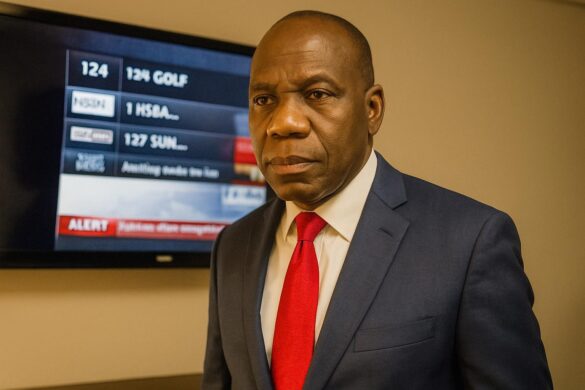First Spark in Brazzaville
News of Pierre Moutouari’s death on October 8, 2025, first spread among the musicians of Poto-Poto before reaching all of Brazzaville. The Ministry of Culture praised “a devoted servant of national harmony,” highlighting how the singer’s career began when he won a government amateur contest in 1968.
Raised in a family where drums marked every celebration, the young guitarist quickly traded strings for a microphone. His older brother, the famous Kosmos Moutouari, welcomed him into Bantou de la Capitale. The orchestra’s refined rumba provided Pierre with the stage that would soon fuel wider ambitions.
Vanguard of the Soukous Rhythm
Pierre found the tempo of rumba too slow for the restless urban youth. By joining Sinza Kotoko in the early 1970s, he pushed a faster, guitar-driven rhythm that critics later labeled soukous. Within months, his tenor voice floated over regional hits like “Vévé nga na lingaka” and “Ma Loukoula”.
The group’s tight choreography won gold at the 1973 Pan-African Youth Festival in Tunis, making the 23-year-old a continental name. Commentators remember that Tunisian performance as “soukous’s coming-out party,” with Moutouari credited for fusing folk harmonies with modern amplification.
Parisian Years and Golden Success
After briefly leading the short-lived project Les Sossa, Moutouari moved to the Paris suburb of Montreuil in 1979, signing with the Afro-Caribbean label Safari Ambiance. Collaborations with Jacob Desvarieux, co-founder of Kassav’, and arranger Ignace Nkounkou refined his studio craft and broadened his appeal beyond Central Africa.
The sessions produced “Koundou,” “Mbekani,” and especially “Missengue,” whose irresistible chorus sold over 50,000 copies and earned a gold record in 1982. Kassav’ later cited the riff on “Madiagana,” cementing the song as a bridge between rumba, soukous, and zouk.
Subsequent singles “Aïssa,” “Julienne,” and “Saïle” kept dance floors packed from Abidjan to Brussels. French radio host Georges Collinet called Moutouari “the man who taught Europe how to pronounce ndombolo dance steps,” a tribute the singer acknowledged with a shy smile on an ORTF television broadcast in 1984.
Mentor and Resilient Entrepreneur
Upon his permanent return to Brazzaville in 1986, Moutouari invested his royalties into a modest studio where he coached teenagers on vocal technique and stage presence. His daughter, Michaël, emerged from these sessions; their collaborative album “Héritage” was praised for its intergenerational dialogue.
The artist also ventured into record distribution starting in 1993, hoping to shorten the path between studios and street markets. However, an armed conflict in 1997 destroyed his warehouse in Pointe-Noire. “I lost tapes, pressings, memories—but not faith,” he said in a 2005 interview.
